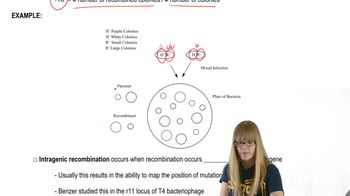Here are the essential concepts you must grasp in order to answer the question correctly.
Phenylketonuria (PKU)
Phenylketonuria is a genetic disorder caused by a deficiency in the enzyme phenylalanine hydroxylase, which is necessary for converting phenylalanine into tyrosine. Individuals with PKU accumulate high levels of phenylalanine, which can lead to neurological issues if not managed through diet. Understanding PKU is crucial to grasp why individuals with this condition do not exhibit a deficiency of tyrosine despite the inability to convert phenylalanine.
Tyrosine Synthesis
Tyrosine is classified as a non-essential amino acid because it can be synthesized in the body from phenylalanine. In individuals with PKU, while the conversion process is impaired, tyrosine can still be obtained from dietary sources or through alternative metabolic pathways. This explains why individuals with PKU do not typically exhibit a deficiency of tyrosine despite the metabolic block.
Recommended video:
Dietary Management
Dietary management is a critical aspect of living with PKU, as individuals must adhere to a low-phenylalanine diet to prevent toxic accumulation. This diet often includes special medical foods that provide adequate tyrosine and other essential nutrients. By carefully managing their diet, individuals with PKU can maintain normal levels of tyrosine, mitigating the risk of deficiency despite their metabolic limitations.
Recommended video:





